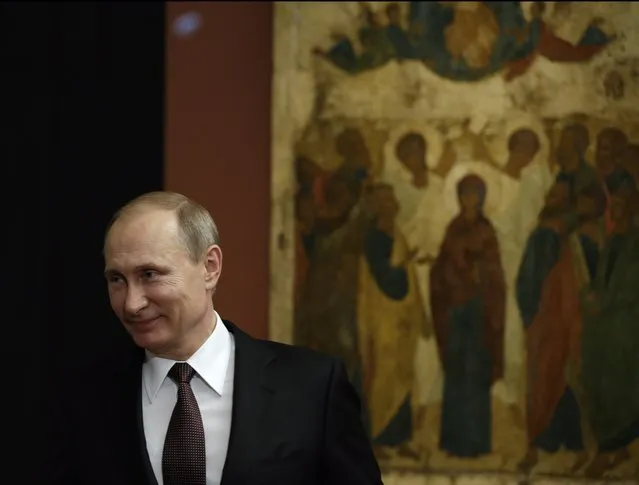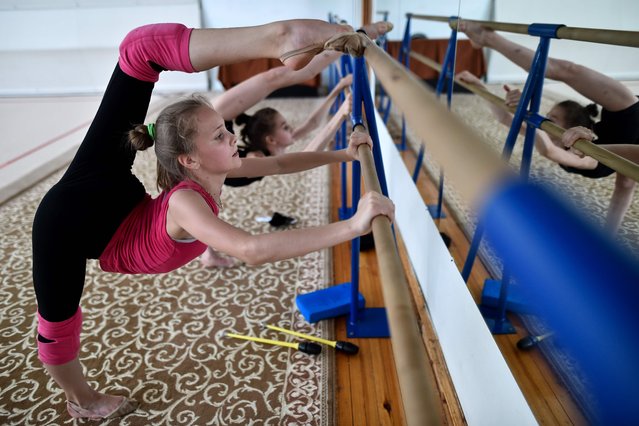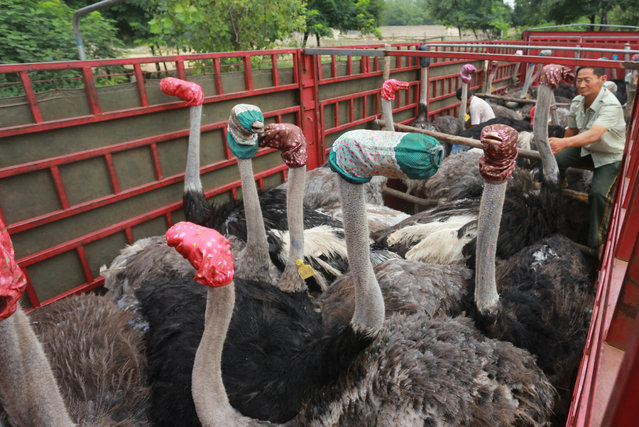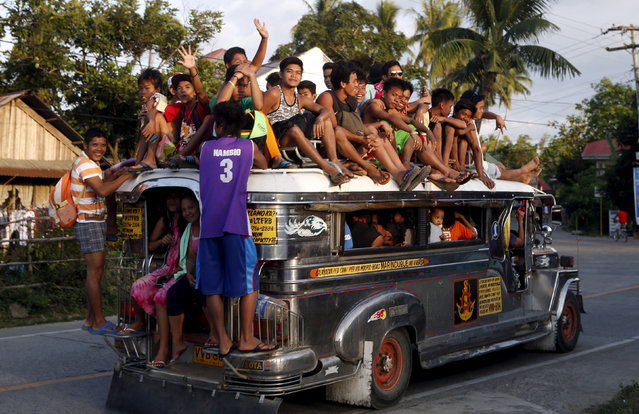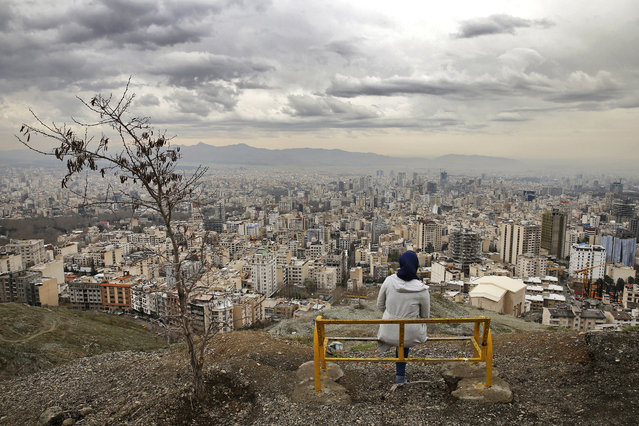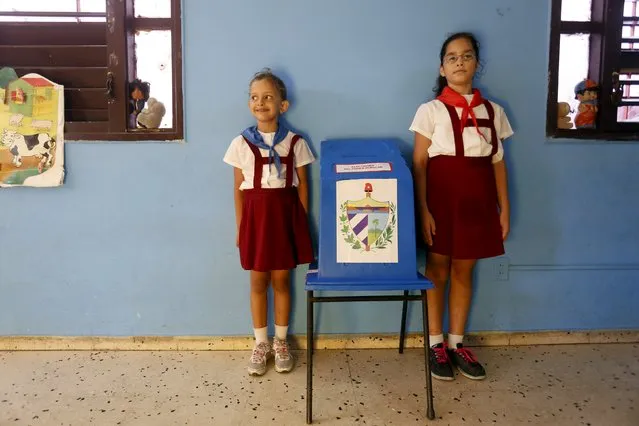
School girls stand next to a ballot box at a polling station during the municipal elections in Havana April 19, 2015. Cuba held its first local elections since a historic thaw in relations with the United States with an unusual wrinkle in the single-party system: two of the 27,000 candidates openly oppose the government. (Photo by Reuters/Stringer)
20 Apr 2015 12:52:00,post received
0 comments

